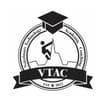Podcast
Questions and Answers
What is the primary focus of medical nursing?
What is the primary focus of medical nursing?
- Surgical wound management
- Patient education solely
- Medication administration only
- Chronic and acute medical conditions (correct)
Which responsibility is NOT part of surgical nursing?
Which responsibility is NOT part of surgical nursing?
- Postoperative pain management
- Conducting preoperative assessments
- Performing open heart surgeries (correct)
- Maintaining a sterile environment
What is essential for effective patient education in medical nursing?
What is essential for effective patient education in medical nursing?
- Informing patients about their drug interactions
- Providing information on self-care practices (correct)
- Administering only necessary medications
- Monitoring vital signs frequently
What aspect does patient-centered care emphasize?
What aspect does patient-centered care emphasize?
Which of the following is a common surgical technique?
Which of the following is a common surgical technique?
What should be ensured before a patient undergoes surgery?
What should be ensured before a patient undergoes surgery?
What is an example of a chronic illness commonly addressed in medical nursing?
What is an example of a chronic illness commonly addressed in medical nursing?
Engaging in ongoing education for nursing professionals serves what purpose?
Engaging in ongoing education for nursing professionals serves what purpose?
Flashcards are hidden until you start studying
Study Notes
Medical and Surgical Nursing Overview
- Definition: A specialized field focused on providing care to patients experiencing acute and chronic medical conditions, as well as preoperative and postoperative care.
Key Roles and Responsibilities
- Patient Assessment: Conduct thorough assessments to identify patient needs and develop care plans.
- Medication Management: Administer medications, monitor effects, and educate patients on their use.
- Wound Care: Manage surgical wounds and assess for signs of infection or complications.
- Patient Education: Provide information on disease processes, treatment options, and self-care practices.
- Collaboration: Work with interdisciplinary teams, including surgeons, physicians, and therapists.
Medical Nursing
- Focus Areas:
- Chronic illnesses (e.g., diabetes, heart failure)
- Acute conditions (e.g., pneumonia, sepsis)
- Nursing Interventions:
- Vital signs monitoring
- Symptom management
- Health promotion and disease prevention
Surgical Nursing
- Preoperative Care:
- Patient assessment and education
- Preparation for surgery (e.g., fasting, medication adjustments)
- Intraoperative Care:
- Assist in the operating room
- Maintain sterile environment
- Monitor patient vital signs and anesthesia levels
- Postoperative Care:
- Assess recovery and manage pain
- Monitor for complications (e.g., bleeding, infection)
- Educate on recovery instructions and follow-up care
Common Procedures in Surgical Nursing
- Types of Surgeries:
- Elective (planned) surgeries (e.g., hip replacement)
- Emergency surgeries (e.g., appendectomy)
- Surgical Techniques:
- Open surgery
- Minimally invasive surgery (e.g., laparoscopy)
Patient-Centered Care
- Holistic Approach: Consider physical, emotional, and social aspects of patient care.
- Cultural Sensitivity: Acknowledge and respect diverse cultural backgrounds and beliefs.
Documentation and Legal Considerations
- Accurate Record-Keeping: Maintain detailed documentation of assessments, interventions, and patient responses.
- Informed Consent: Ensure patients understand procedures and associated risks before surgery.
Continuing Education and Professional Development
- Staying Current: Engage in ongoing education to stay updated on medical advancements and best practices.
- Certifications: Consider pursuing certifications in medical-surgical nursing (e.g., CMSRN).
Challenges in Medical and Surgical Nursing
- High-Stress Environment: Manage workload and emotional stress associated with patient care.
- Complex Patient Needs: Address multifaceted cases involving co-morbidities and complications.
- Ethical Dilemmas: Navigate issues such as end-of-life decisions and patient autonomy.
Conclusion
- Medical and surgical nursing is a dynamic and integral part of healthcare, requiring a diverse skill set and commitment to patient well-being.
Medical and Surgical Nursing Overview
- Specialized field caring for patients with acute and chronic conditions, both preoperative and postoperative.
Key Roles and Responsibilities
- Conduct comprehensive patient assessments to tailor individualized care plans.
- Administer and monitor medications, providing patient education about their usage and side effects.
- Manage surgical wounds, looking for infection signs and complications.
- Educate patients on their diseases, treatments, and self-care strategies.
- Collaborate effectively with a multidisciplinary team, including surgeons, physicians, and therapists.
Medical Nursing
- Focuses on chronic conditions like diabetes and heart failure, as well as acute conditions such as pneumonia and sepsis.
- Nursing interventions include monitoring vital signs, managing symptoms, and promoting health and disease prevention.
Surgical Nursing
- Preoperative Care: Involves assessing the patient and preparing them for surgery, including fasting and medication adjustments.
- Intraoperative Care: Assists during surgery, ensuring a sterile environment and monitoring patient vitals and anesthesia.
- Postoperative Care: Assesses recovery, manages pain, monitors for complications like bleeding or infection, and educates patients on recovery processes.
Common Procedures in Surgical Nursing
- Covers both elective surgeries (e.g., hip replacements) and emergency surgeries (e.g., appendectomies).
- Employs various surgical techniques, including open surgery and minimally invasive procedures like laparoscopy.
Patient-Centered Care
- Utilizes a holistic approach, considering physical, emotional, and social dimensions of patient care.
- Emphasizes cultural sensitivity to foster respectful care across diverse backgrounds.
Documentation and Legal Considerations
- Accuracy in record-keeping is essential for documenting assessments, interventions, and patient responses.
- Informed consent is critical, ensuring that patients understand procedures and associated risks.
Continuing Education and Professional Development
- Ongoing education is necessary to keep up with medical advancements and best practices.
- Pursuing certifications in medical-surgical nursing, such as CMSRN, is beneficial for professional growth.
Challenges in Medical and Surgical Nursing
- Experiences a high-stress workload along with emotional stress stemming from patient care.
- Needs to manage complex cases with multiple co-morbidities and potential complications.
- Faces ethical dilemmas related to end-of-life care and patient autonomy.
Conclusion
- Medical and surgical nursing plays a vital role in healthcare, requiring a blend of skills and a deep commitment to patient care.
Studying That Suits You
Use AI to generate personalized quizzes and flashcards to suit your learning preferences.





